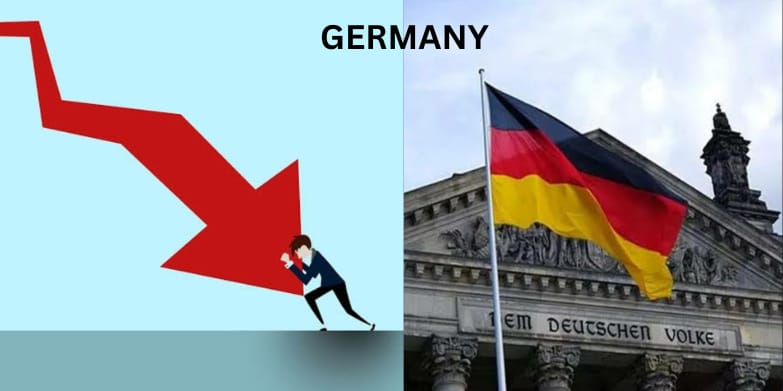The GDP of Germany has been reduced by 0.3% in this quarter and when the data was adjusted to the calendar effects and price, it showed that the country is suffering from recession and 0.5% contraction was seen in the last few months of the previous year.
The nation is believed to be in recession, if the country’s economy falls down for two consecutive quarters of three months. The federal statistics agency has revised the negative figures of the present quarter with zero percent as the initial estimation.
Germany had faced the energy crisis which was unlocked due to the invasion of Ukraine by Russia in 2022. The energy supplies of the country started diminishing due to the consequences of war in Russia and that resulted in hiking of stocks with the really high prices. Due to this, the consumption in the households started decreasing quarter by quarter after adjusting the price, calendar and the seasons.
The investments in the country started increasing in the initial few months of 2022 and it weakened at the end of 2022, this trade didn’t result in the negative contributions rather had a positive impact in the statistical figures of the country.
Previous recession of Germany was during the pandemic in the year 2020, where the government insisted on shutting down all the large bundles of the economy.
The largest economy of Europe was badly impacted when the energy supplies started draining in Russia due to invasion by them in Ukraine. The country’s economy worsened by 0.3% during January to March which was continued by last year’s contraction of about 0.5%.
Andreas Scheuerle, an analyst from DekaBank made a statement that, “The consumers in Germany have gone to their knees, pulling the whole economy down along with them during these huge inflation times”.
The inflation rate of Germany in the month of April was 7.2% which was above the average of the European areas, but less than the United Kingdom’s inflation rate.
Almost all the income was spent by the consumers on household materials such as food, furniture and clothing whose prices were really high. The industrial orders of the businesses were also fixed at higher prices due to the impact of inflation in the country.
The resuming activities of the Chinese economy and the moderate winter climate influenced the energy prices and because of this, the recession in Germany was comparatively less than what was predicted by the higher officials.
The export activities and the private sector investments started increasing, but that didn’t help Germany to get out of the recession zone.

